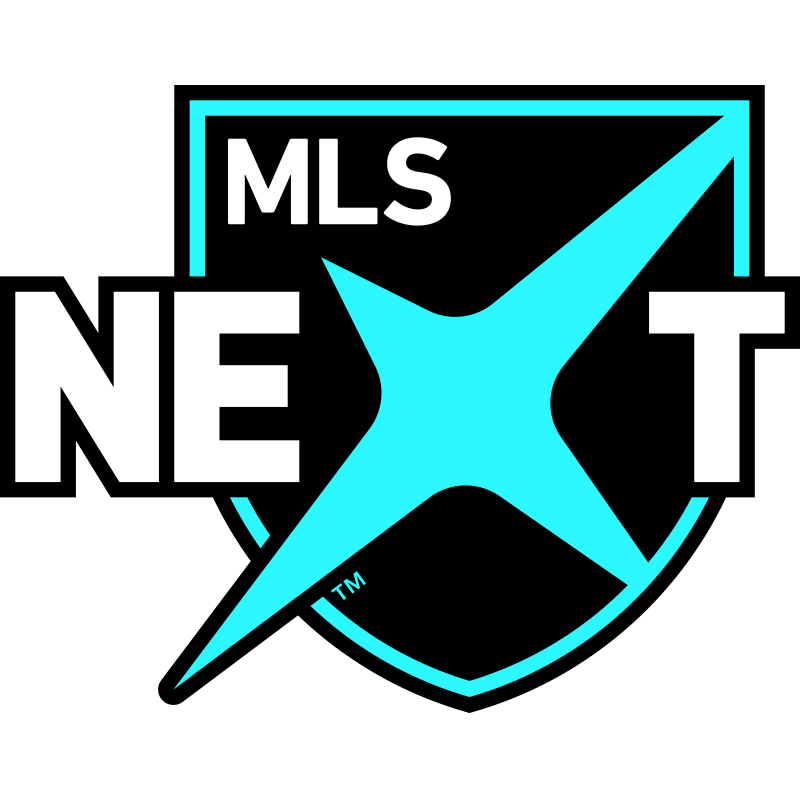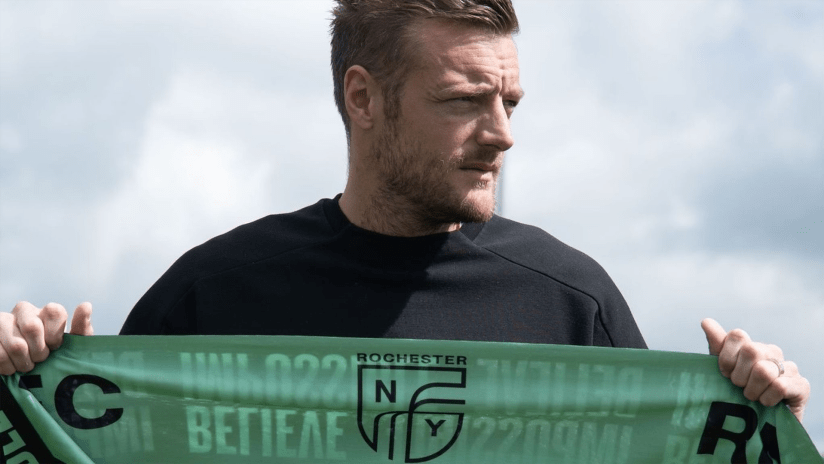It’s now been over 18 years since Sheffield Wednesday told Jamie Vardy he wasn’t up to snuff. But the pain of his boyhood club dismissing him from their academy still sounds fresh when he recalls it today.
“At that moment in time that dream got took away from me, which was hard to take, it really was,” the Leicester City star told MLSsoccer.com. “Being told that you’re too small is not something you want to hear – especially when you have a nice little growth spurt literally two, three months later. So it was tough to take and I took a bit of time out, to be honest with you, didn't really know what I was doing. I’d just always thought I was going to be a footballer.
“I don't know how you can tell someone at that age that they're not good enough, when they still got so many years left to develop and grow and obviously to learn new things.”
After stepping away from the game for eight introspective months, Vardy would persevere. First he accepted an invitation from friends to join their Sunday league team, Wickersley, the first step in an amazing climb up the English pyramid.
Next he joined Stocksbridge Park Steels, a small club then in the seventh tier where he worked his way from reserves to first team and was rewarded with his first wages for playing the game: The very modest sum of £30 (about US $40) a week. That meant that he kept working at his 9-to-5 job at a carbon fiber factory, squeezing in his soccer dream like a side hustle.
“If we had a Tuesday night game, I've just done an eight-, nine-hour shift at work, I'm driving, stopping off at a local service station takeaway just to get a bit of food just before the game,” Vardy recalled. “So it was really hard. But I probably wouldn't change it, because it's made me the person I am today and probably made me have the career that I have.”
Clubs further up the totem pole were taking notice of this hard-running striker who’d come out of nowhere, skinny but steely, clinical in front of goal, with pace to burn. FC Halifax Town, a few rungs up the ladder, paid a shade under $20,000 to acquire him, and after 25 goals in 37 matches en route to the 2010-11 Northern Premier League Premier Division championship, he climbed a few more rungs again when Fleetwood Town bought him.
“Within three years I'd signed for three different clubs,” he said. “But every one of them clubs was another jump up, another jump up, another jump up.”
The rest is, quite literally, Premier League history. The goals kept flowing, scouts kept flocking and in 2012 Leicester made him the most expensive non-league transfer ever, paying £1 million to make him a Fox. Vardy fueled their promotion push into the top flight, and a few years later they stunned the world with their Cinderella run to the 2015-16 Premier League trophy. By this time the former factory worker was an England international, and he went on to represent his country at Euro 2016 and the 2018 World Cup.
More Jamie Vardys?
Now Vardy wants to provide comparable opportunities to younger generations of talent here in North America, as he and the rest of Rochester New York FC become the first independent club in MLS NEXT Pro, the new league set to launch next year to complete an integrated player pathway from MLS NEXT through to MLS first teams.
RNY FC will be one of 21 clubs for the inaugural season that starts in March 2022, with MLS NEXT Pro looking to introduce additional independent clubs to the league in 2023 and beyond.
“We want to be playing the best young lads that are out there,” he said of RNY FC, formerly known as the Rochester Rhinos, where he became a co-owner earlier this year. “We want to be winning, and for us to do that, we need to make sure that we're on our game and we want to also be developing the players. We don't just want them to be staying with us, we want to make sure that they're putting their all in, that's winning us games, but then there's a bigger and better team looking at our players, and we're moving them on to watch them be successful in their own careers.
“We want to train them up, make them better, but we're doing that so that they can go on and possibly change their lives.”
The upstate New York club is rich in history; the 1999 U.S. Open Cup champs remain the only non-MLS club to win that tournament since the top-flight league’s launch in 1996. But financial losses and dwindling attendance forced Vardy’s co-owners David and Wendy Dworkin to put the organization on hiatus at the end of the 2017 USL season and they haven’t taken the pitch since.
Now a new identity, a new chapter and a new league beckons. Even as he continues to bang in the goals for Leicester at age 34, Vardy leaves no doubts about the scale of his ambitions for the project.
“I think it's massive, especially when it is a team like Rochester with the history they've got, the success and obviously beating the MLS teams to win the Open Cup,” he said. “So I think to have that involved with it all is definitely a good stepping stone to show the other independent clubs that they can come join in as well.
“We don't really see it as a lower division, if I'm being honest. It doesn't matter what they say, it's part of MLS, MLS is massive. And what we're wanting to do is go in there and beat all the MLS teams. So that's exactly what we're going to focus on.”
"The talent is there"
Vardy has taken note of the groundswell of top players emanating from Canada and United States to carve out significant roles at some of Europe’s biggest clubs and believes Rochester can play a role in speeding that process along.
“You've got, obviously, [Vancouver Whitecaps homegrown] Alphonso Davies, who last year was absolutely unbelievable at Bayern Munich and so when you see things like that, you know full well that the talent is there,” he noted. “It's just about, for me personally, being given that opportunity. That's the main thing. I think a lot of people don't get given the chance or get missed. So that’ll be one thing that we're hoping we can change, especially in upstate New York, and make sure that we've got them playing for us.”
The challenges of those early years both fueled and formed the future superstar, and even in the different context of North American soccer, he wants to create more Jamie Vardy-type stories.
“It definitely made me the person that I am today,” he said. “The lower leagues in England are quite rough. Being a short, skinny lad, coming up against center halves that looked at you and just thought, ‘yeah, we’ll just kick him a few times and we'll be alright.’
“I needed to toughen up. But luckily I'm one of them people who, I'm not really bothered if I get kicked or anything like that. It's all about getting back up. It just shows them that they're going to be in a game and then eventually you make sure – obviously with a fair tackle – that you pay it back.”
RNY FC had multiple options as they planned their return to play, but saw the developmental aspect of MLS NEXT Pro as a distinguishing feature.
“You look at how MLS went and the growth, it's still going there. So I think MLS Next Pro was the best one to go in,” he said. “It's got so much scope for growth and obviously being the first independent team in there, being able to show what we want, I'm sure there's going to be plenty more that follow. And it's going to make it so competitive, everything's going to improve. Every team's going to improve, and that's what you want. You want the pyramid to be getting as big and as strong as possible so that it just keeps building and building and building.”













